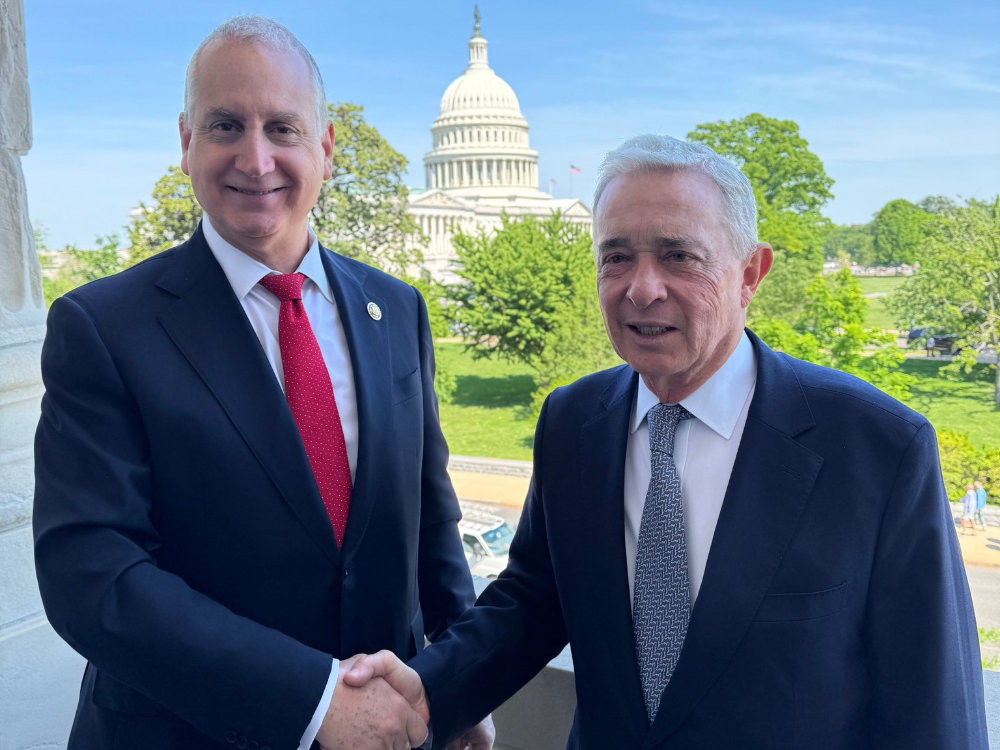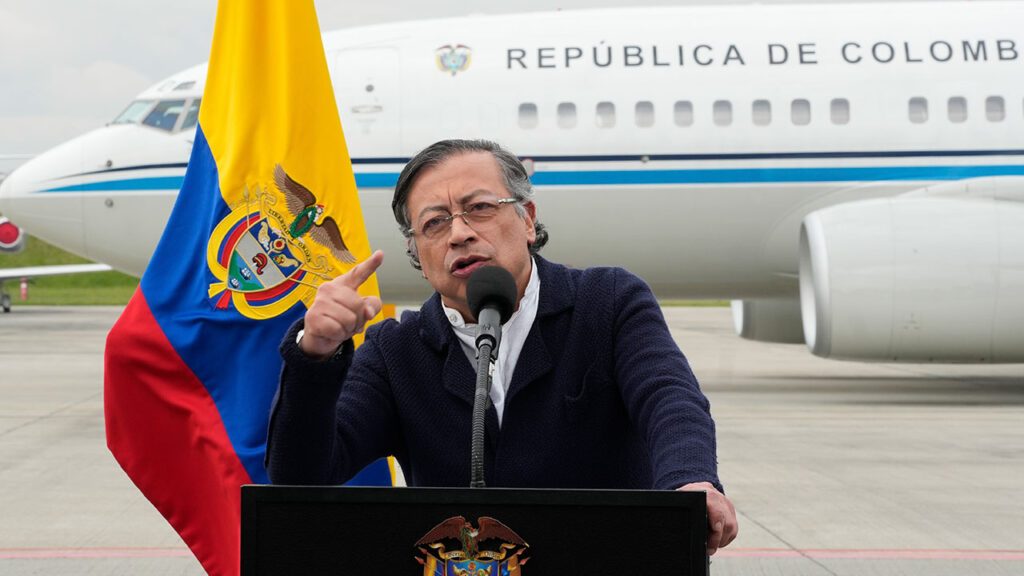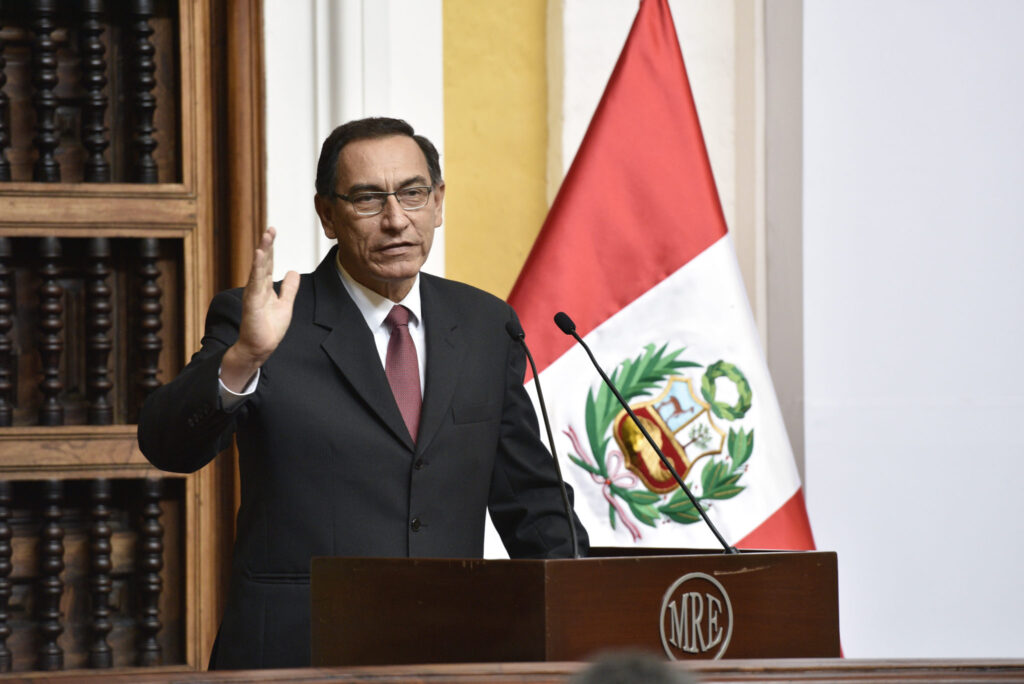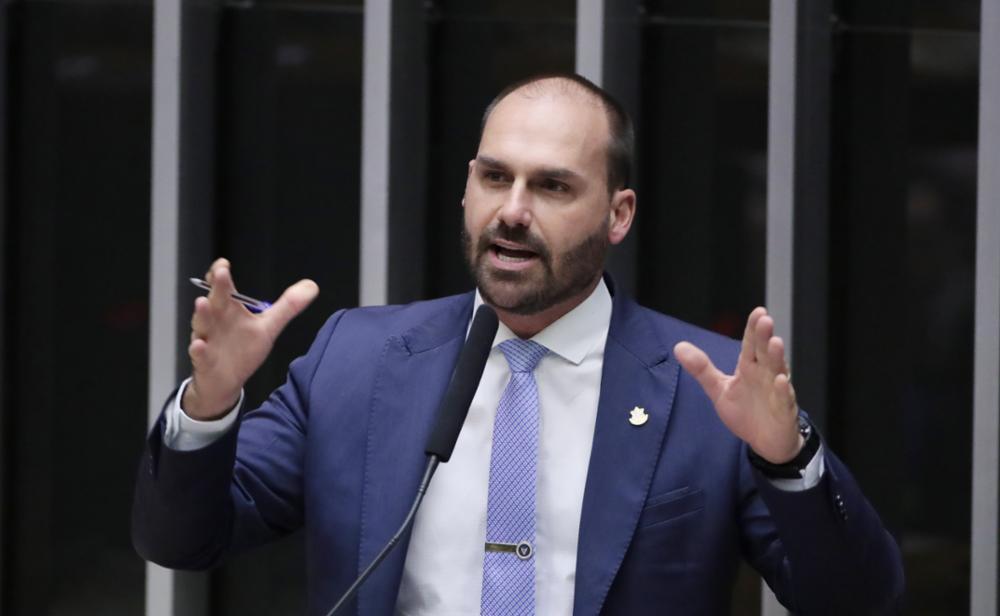The United States House Committee on Appropriations proposed a 50% reduction in its 2026 non-military aid budget for Colombia in a report last week.
The bill cited a host of factors in its decision, including the trial of ex-President Álvaro Uribe, who was convicted last week for witness bribery and abuse of process.
The committee is Republican-controlled and its Vice Chair, Mario Díaz-Balart, is a long-time Uribe ally and supporter who has been openly critical of the trial and verdict.
Uribe was convicted on Monday of trying to flip three witnesses due to testify to his involvement with the right-wing paramilitary United Self-Defense Forces of Colombia, which was a U.S.-proscribed terrorist organization.
Allies of the conservative former president were quick to dismiss the result as politically motivated, despite a lack of evidence to suggest the verdict of the six-month trial was fraudulent.
But they have found powerful sympathizers in Washington, where a slew of senior Republicans, including Secretary of State Marco Rubio, have condemned the trial.
“Former Colombian President Uribe’s only crime has been to tirelessly fight and defend his homeland. The weaponization of Colombia’s judicial branch by radical judges has now set a worrisome precedent,” wrote Rubio in a post on X after the verdict was announced.
Uribe has long-running ties to the Secretary of State Rubio as well as Vice Chair of the House Appropriations Committee Díaz-Balart.
The week before the verdict was announced, the House Appropriations Committee published its annual National Security, Department of State, and Related Programs Appropriations Bill for 2026. The document sets out proposed funding plans for U.S. national defense interests.
“The Committee is concerned by reports of due process violations and judicial irregularities in the case,” read the report drafted by the Republican-controlled committee.
“Questions of politicization raise serious concerns about the deterioration of judicial independence and the rule of law in Colombia,” it continued.
The bill also highlighted “increased reports of drug abuse in Colombia, including at the highest levels of government,” and noted “the deteriorating security environment and rising political volatility in Colombia.”
The proposed funding cuts could be devastating for the country, which has historically depended on U.S. aid.
“It’s bad, Republican members of congress seem like they want to punish Petro but in reality they will make circumstances more difficult for the Colombian armed forces and police,” said Sergio Guzmán, Director at Colombia Risk Analysis, a political risk consultancy.
He also noted that the Uribe case makes decertification even more likely.
“[It] will continue tensioning the relationship between both countries and will very likely lead to decertification in September,” said Guzmán.
Decertification, a Cold War-era policy used to punish states seen as uncooperative in counter-narcotics programs, could open the lid on a raft of aid cuts and sanctions which could be devastating for Colombia.
Petro responded to the threat of cuts saying the government would have to make up for the funds by levying new taxes “on the richest sectors of the country.”
Featured image description: Álvaro Uribe and Mario Diaz-Balart in Washington in April, 2025.
Featured image credit: @MarioDB via X.











